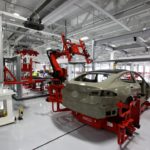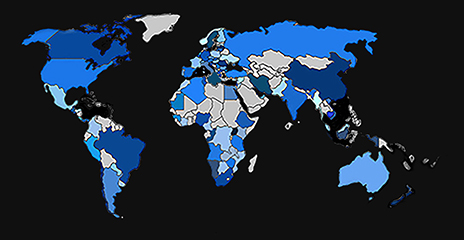
Tesla just announced that it will acquire Germany’s Grohmann Engineering, in a deal that will see the global engineering leader become Tesla’s new Advanced Automation facility based in Germany, a new subdivision of the automaker dedicated to helping Tesla increase the automation and effectiveness of its manufacturing process.
“This will really be our first acquisition of significance in our whole history,” explained Tesla founder and CEO Elon Musk on a call discussing the news, noting that Grohmann was their
“first choice” in terms of bringing on expertise to help it “build the machines that build the machine.”
Tesla expects this to help drive “exponential improvements” in its production process, in terms of both speed and quality of output, while cutting the cost-per-vehicle at the same time. The new facility will also grow its engineering workforce considerably in the next two years, with a target of adding more than 1,000 jobs throughout Tesla’s new Advanced Automation division in both engineering and skilled technician roles. Grohmann currently employs around 700 people, including hardware and software engineers.
“We thought it was important that Tesla become, in part, a German company,” Musk said, regarding the investment in the country. “That’s what this was all about.”
Tesla CTO JB Straubel (photo) explained that Tesla has been working with Grohmann in a partnership for the past few months, and found that the teams complemented each other well and were achieving a lot in terms of automation improvements, and determined they could do even more as a combined company. Both Musk and Grohmann founder Klaus Grohmann also expressed deep mutual respect for each other’s companies because of their similar foundational stories.
This new acquisition represents a significant investment in Tesla’s production processes at a very fundamental level, similar to some of the company’s moves to take ownership of other aspects of its business at a more basic level, including with the new inverter used in its Powerwall 2 home storage battery, and with the software used in its forthcoming self-driving technology.
Musk has previously identified production as a key area of personal focus in terms of driving improvement. He noted that he has camped out in the past to help facilitate production rate improvements that helped Tesla meet its vehicle output goal of 2,000 cars per week, and has also identified production rate limits as a key area for improvement the company is pursuing in its home energy business.
In a blog post detailing the news, Tesla noted that it’s already been able to boost production by 400 percent over four years, and it expects to be able to drive that up further as a result of this new acquisition. Tesla is anticipating that the deal will close by early 2017, once it receives clearance from German regulators. Tesla did not disclose the financial terms of the deal. Source: TechCrunch
